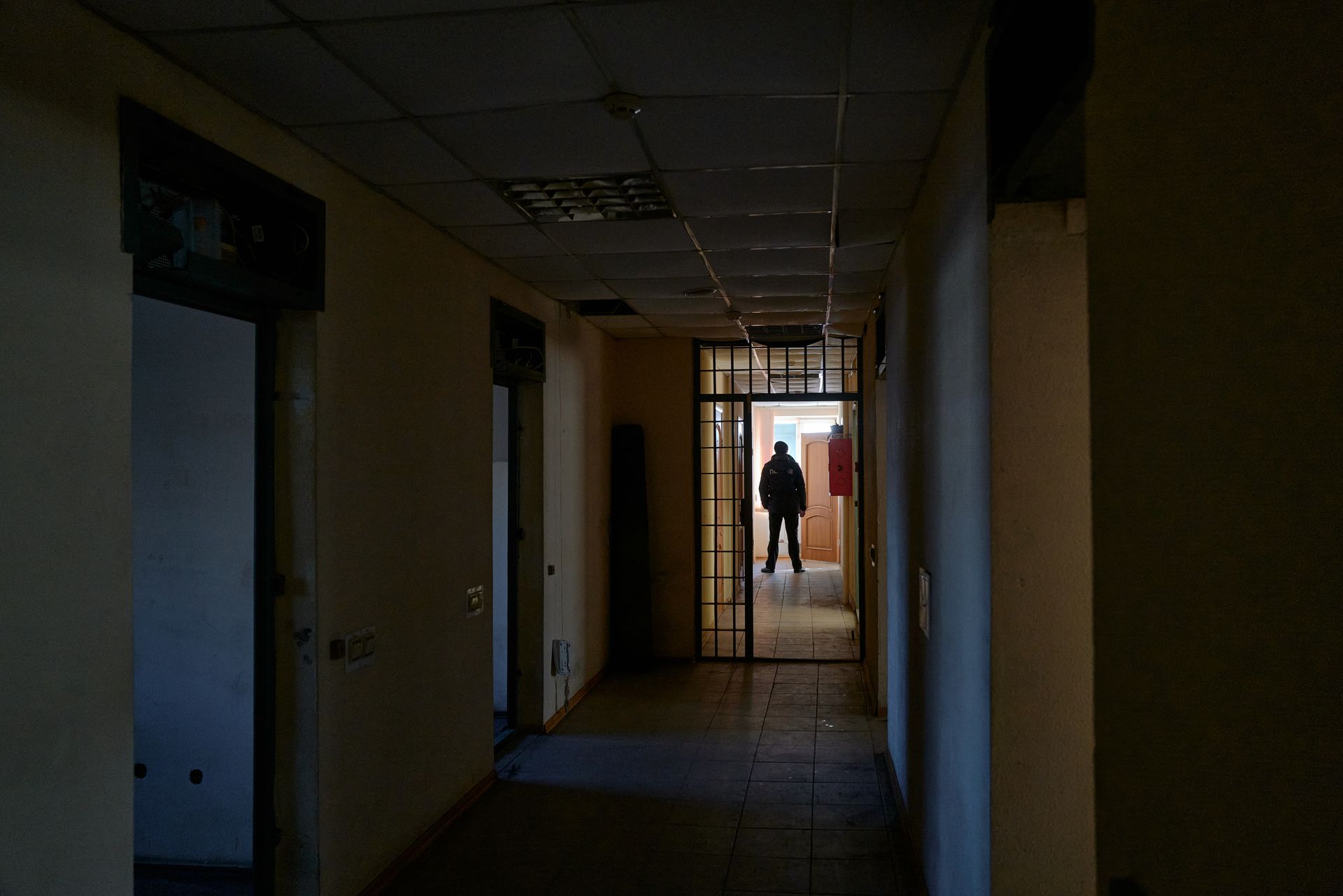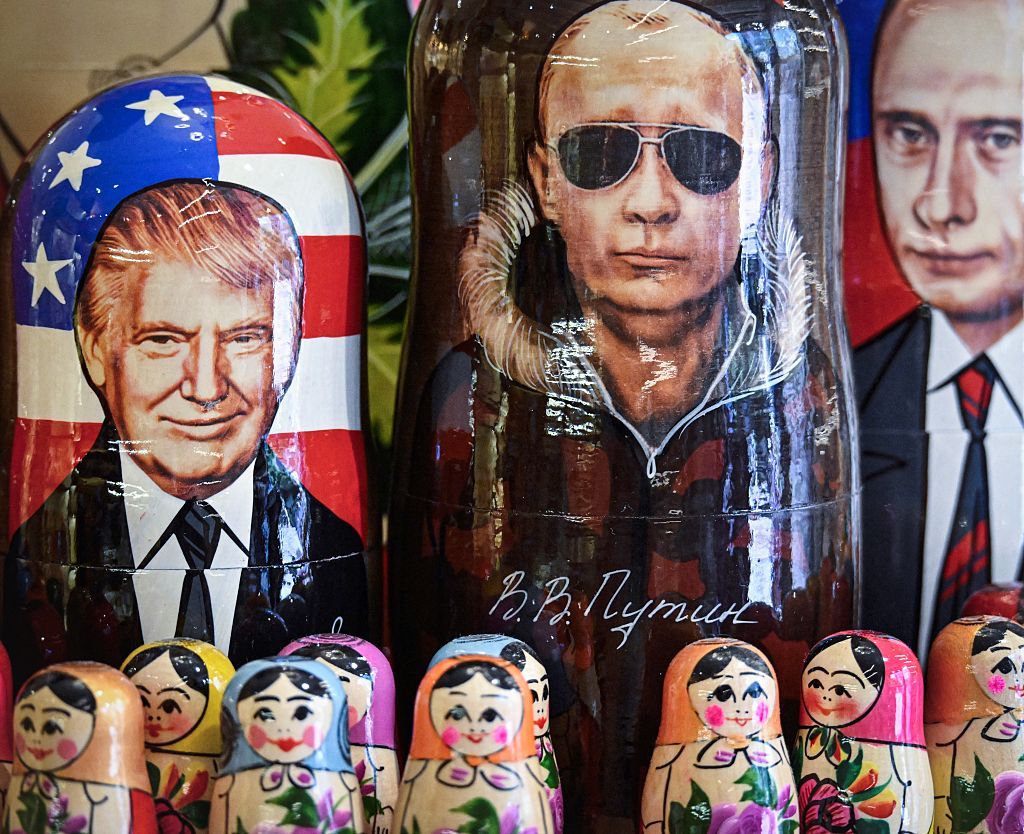'He is still being tortured' — Ukrainian families plead for all-for-all prisoner swap ahead of Trump-Putin summit

Protesters gathered outside the U.S. embassy, holding signs against land swaps and calling for an all-for-all prisoner exchange between Ukraine and Russia, in Kyiv, Ukraine, on Aug. 15, 2025, ahead of Trump-Putin talks in Alaska. (Sergei Supinsky/AFP via Getty Images)
Oksana Berezina stood holding a Ukrainian flag with a photo of her husband, Oleh, who went missing in Russia’s Kursk Oblast late last year and is believed to be a prisoner of war.
Like others gathered in protest, she is pinning her hopes on a meeting between presidents Donald Trump and Vladimir Putin — and the chance of an all-for-all exchange.
Relatives and friends of Ukrainian prisoners of war gathered on Aug. 15 outside the U.S. Embassy in Kyiv ahead of the summit between Russian and American leaders in Alaska, marking their first face-to-face meeting since the start of Trump’s second term.
"We want children to be with their parents and to grow up in peace," Berezina told the Kyiv Independent. "We want wives and mothers not to be left alone, not to be forced to search for their loved ones."
The demonstration followed the U.S. president’s announcement that a land swap could be on the table. The protesters made their demands clear, calling on Trump to "replace the land swap with an all-for-all prisoner swap."
"If the war freezes, Putin will start handing down fabricated sentences to those still in captivity."
President Volodymyr Zelensky said in July that since the onset of Russia’s full-scale invasion, Ukraine has secured the release of over 6,400 people from Russian captivity. But thousands of Ukrainian soldiers and civilians remain imprisoned — some held for more than a decade, dating back to the early Russian incursion in eastern Ukraine in 2014.
Protest participant Nina is awaiting the return of her son Dmytro, a soldier in the National Guard. Dmytro was among approximately 2,000 Ukrainian troops who surrendered on May 16, 2022, after 86 grueling days defending the Azovstal steel plant in Mariupol — a site that has come to symbolize the unwavering resilience of Ukrainian soldiers.
Nina, who asked for her last name to not be published in order to protect her son, has been waiting for him for 1,180 days. She keeps the count every day.
"My son turns 40 tomorrow — it is his birthday. But it is hard to accept that he has not been home for four years,” Nina told the Kyiv Independent. “He is still being tortured. My heart feels like it is breaking into pieces.”


Illia Illiashenko, with a callsign "Smurf," understands the true cost of prisoner swaps. As a defender of Azovstal, he spent nearly a year in Russian captivity, held in some of the harshest facilities, including the notorious Olenivka prison in occupied Donetsk Oblast, as well as detention centers in Taganrog and Kamensk-Shakhtinsky in Russia.
Illiashenko emphasized that Russia blatantly disregards international conventions, subjecting Ukrainian prisoners to humiliation and abuse. That’s why, he said, prisoner exchanges must remain an urgent priority, as Russia not only subjects Ukrainians in captivity to torture but is also fabricating charges to extend their imprisonment.
"If the war freezes, Putin will start handing down fabricated sentences to those still in captivity, and I believe this will happen on an even larger scale," Illiashenko told the Kyiv Independent.
Yet, Illiashenko remained skeptical about the upcoming meeting between Trump and Putin, pointing to the latter’s history of broken promises and the failure of past direct talks between Ukraine and Russia to advance peace. Despite this, the former prisoner of war stressed that Ukraine can’t afford to be sidelined, no matter the outcome, especially when it comes to territorial concessions.
"These are our territories. We defended them, and we live here. It is not for other countries to decide which ones we keep and which we give up," he said.
Note from the author:
Hi, this is Kateryna Hodunova, the author of this article. Speaking to the families who have been waiting for years for their loved ones to return from Russian captivity shatters my heart. But I hold onto hope, because whenever we speak about prisoners of war, we bring them closer to home.
If you’d like to support our team in covering the ongoing war in Ukraine and stories like this one, please consider joining our community.












